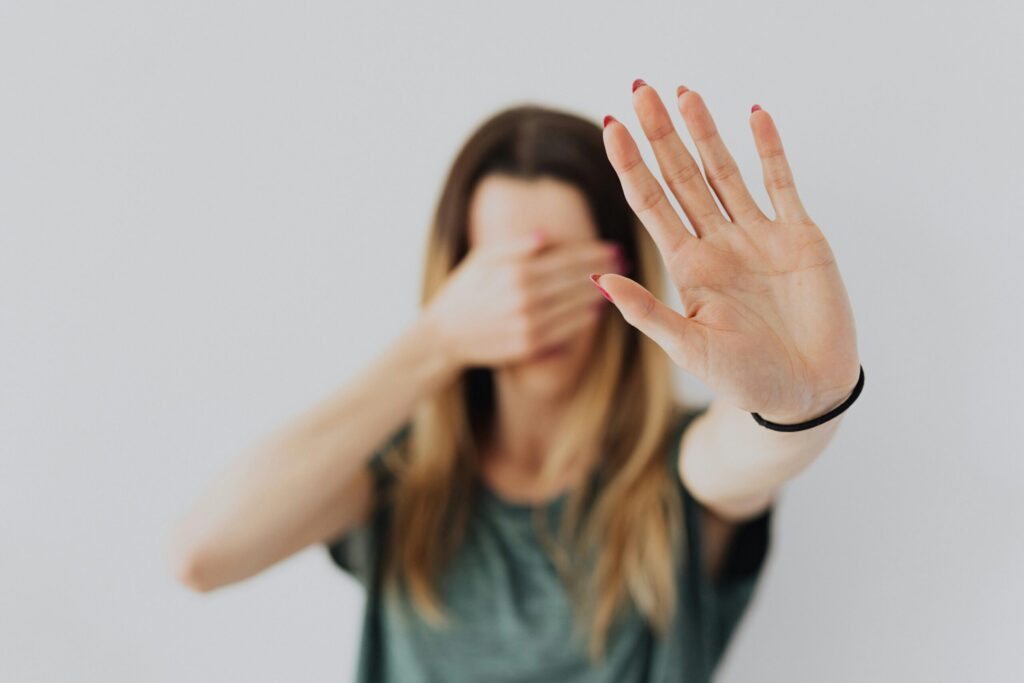Life is all about perspective.
(Photo: Karola G | Pexels)
Published October 29, 2025 04:22AM
Beads of sweat drip from my forehead as I fumble my weight between my hands and feet, lifting my hips, lowering my heels toward the mat, prying my shoulders from my ears, spreading my fingers wide, and breathing at the same time. The worst part? The pangs of pain in my hands and wrists that eventually force me to surrender into Child’s Pose.
This is the clumsy, awkward, fussy, nonintuitive dance that is my Downward-Facing Dog.
If I were to describe my relationship with Down Dog, it’s as if the pose is an A-list Hollywood star and I’m the begrudged cinephile leaving mean Rotten Tomatoes reviews on their movies, commenting, “What does everyone see in them?” and “Take an acting class already.”
I run through a similar list of criticisms and questions about the pose each time I attempt it in class. Why is Down Dog cued so early in a practice—which causes my body to literally crack and pop from not being warmed up? Why is there rarely a mention of variations or prop suggestions for Down Dog? Is the assumption that everyone is okay with it as-is? I’ve even scanned the room when the pose is cued, sorta expecting to see someone else roll their eyes or visibly dislike the pose as much as I do…to no avail.
At times, my near-constant frustration makes me question whether yoga is something I should keep doing. Feeling like the only person in class who doesn’t—or can’t—practice Down Dog weighs on me mentally, as if I’m boycotting a brand that everyone I know continues to proudly purchase and wear in front of me.
Until suddenly, everything I thought about Down Dog changed.
I was recently taking one of my favorite yoga classes. I knew I’d hear the words “Come into Down Dog,” just as clearly as I knew I’d get annoyed by them. But I always leave this particular class a more content, less mentally bogged-down version of myself, so I pushed myself to go anyway.
When the teacher cued Downward Dog, I came into Dolphin—my default alternative. “Nice, Laura,” she says. Soon after, I have one of those aha moments—when answers to questions I wasn’t even asking crash land into my consciousness with a gentle thwack.
Its message is clear: I had lost perspective.
It’s pretty easy to mentally blame yoga teachers and even the practice of yoga itself for seemingly failing to acknowledge my personal discomfort with Down Dog. But if I venture underneath that, I find feelings of being overlooked and exceptional (not the good kind of exceptional). It’s triggering to feel my body aging and changing, to the point where I can’t practice just any pose with relative ease. It can be equally triggering for me to practice Dolphin when everyone else gets to do Down Dog. (My therapist has the drawn-out history of my struggle with worthiness and social comparison. You get the gist.)
The result? I point the finger at the things I perceive to be excluding me.
But here’s the thing: I have the tools to support myself, and I always have. I practice Dolphin. I’m familiar with wrist stretches to make Down Dog a little easier. (Admittedly, I literally never do them.) So instead of leaving class with an eye roll and a chip on my shoulder for not feeling completely taken care of, I can reframe it. Instead of asking, “Why was I excluded?” I can ask, “How can I better support myself if I’m going to participate in this practice?” and “How can I give myself credit for how I am already showing up for myself?”
It reminds me of unrealistic thought patterns that tend to pop up in relationships. You know the ones. “If this person really loved me, they would’ve been on time,” or the all-too-popular dating advice recently trending on social media, “If he wanted to, he would.” There’s a time and place for setting boundaries and feeling acknowledged just the way I like it. But just because someone doesn’t do something to my utmost and unvoiced specification dictated by my (often compulsive) thoughts, it doesn’t always mean, well, anything.
I sometimes treat my yoga practice that way, too. It’s as if my love language is wrist support and yoga’s love language is literally everything else. But because I’m expecting my instructor to mind-read and publicly announce, “It’s okay to hate Downward Dog and why don’t we do something different?” I get ready to wash my hands of yoga altogether. Yet that would rob me of the indescribable, otherworldly, spiritual, gooey, warm, satisfying, nourishing everything that yoga does provide every time I show up for it.
Ironically, my teacher may have helped me arrive at this conclusion by praising me, not for doing a pose as it was cued, but for showing up fully for my version of it. I do need that sweet, sweet external validation from time to time for doing the things I can do. Now I’m realizing I can do the same for yoga—appreciating what it does for me and acknowledging what I must do for myself.


